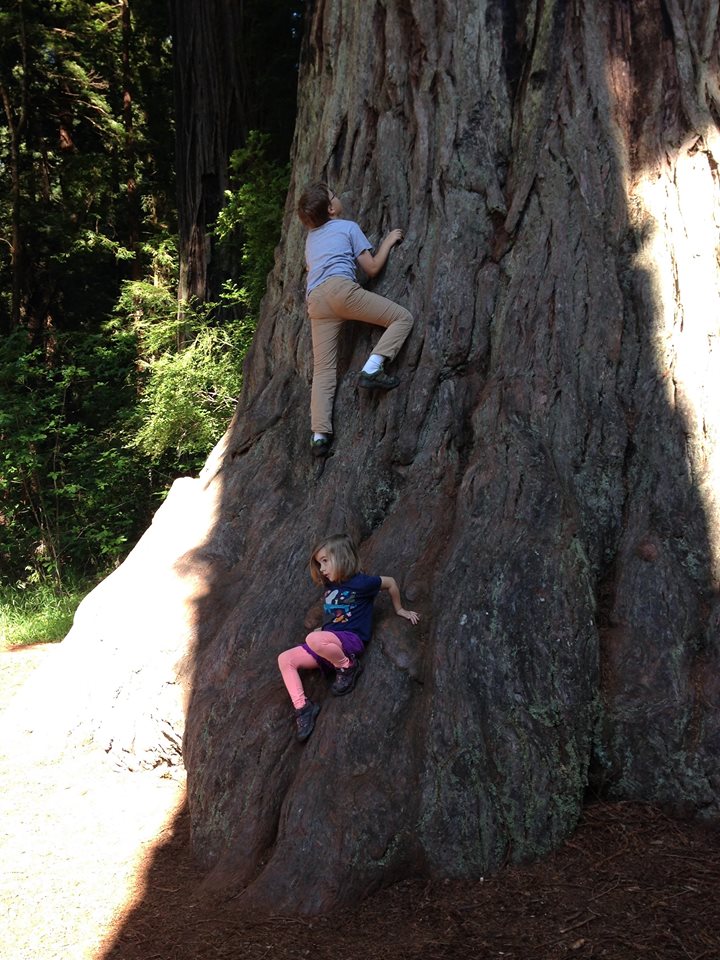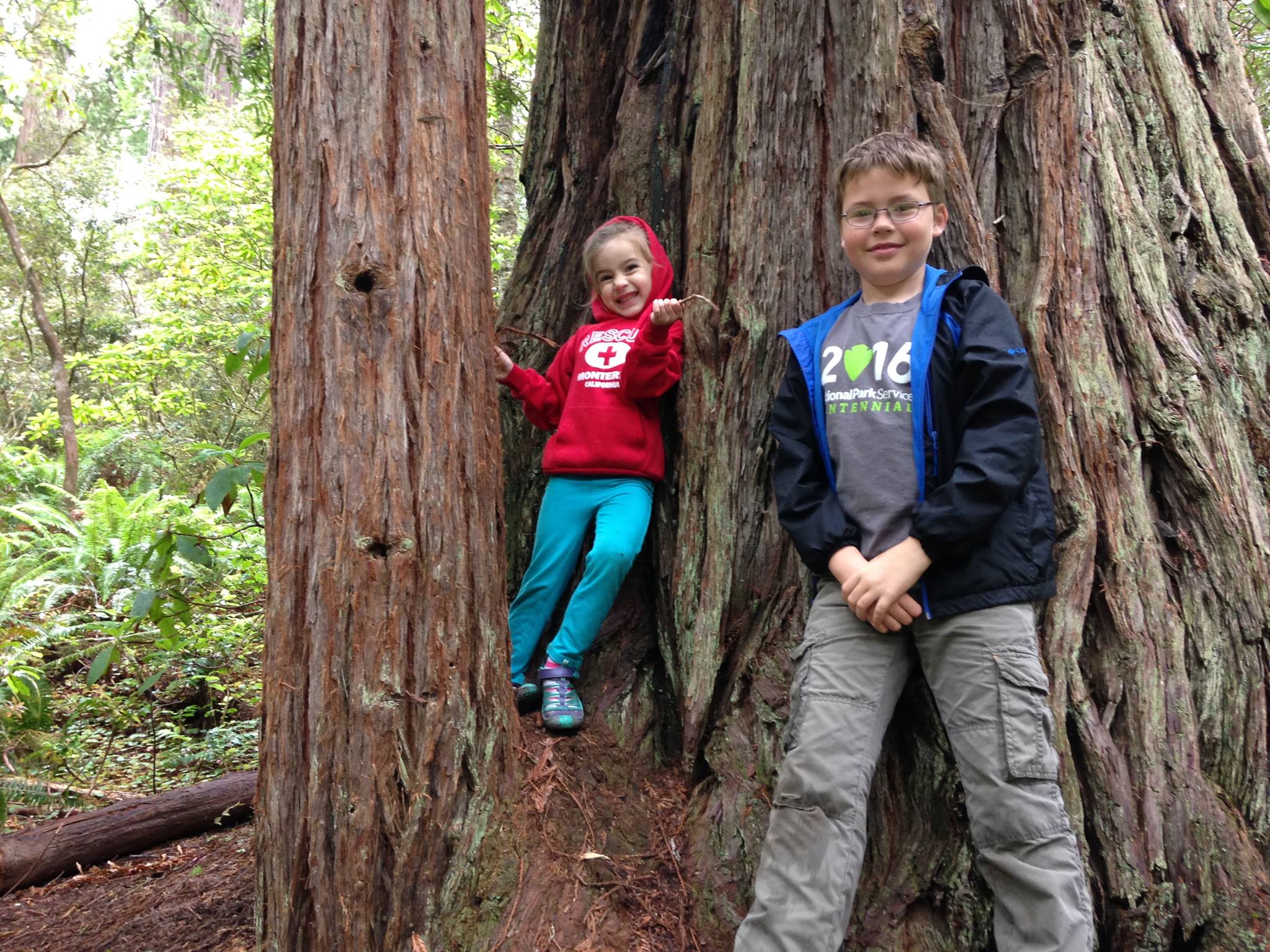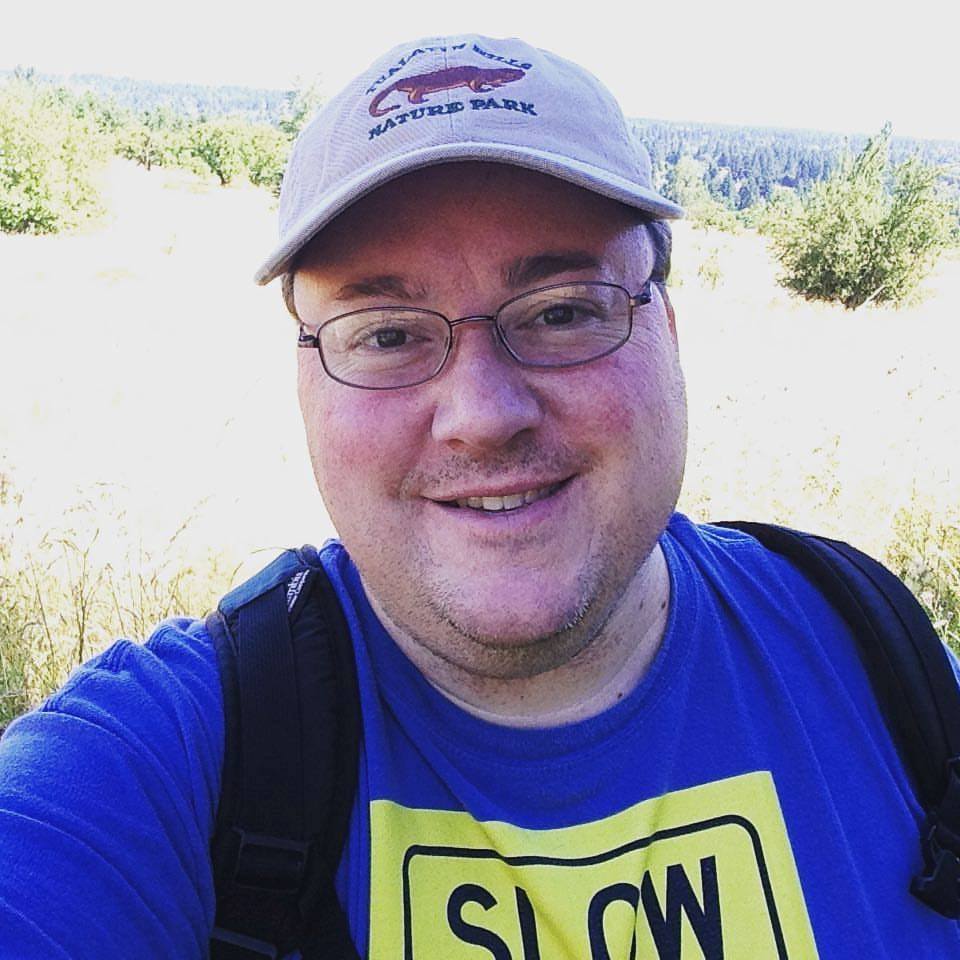
Humanist Perspective Series: Connecting Children to Nature
By AdministratorI have many favorite quotes about children and nature, but here are two very simple yet insightful ones:
“What is the extinction of a condor to a child who has never seen a wren?” – Robert Michael Pyle, author
“How can we expect [children] to really care about their natural environment if they’ve never had an experience in it?” – Martin LeBlanc, Sierra Club
Taking your child or children on an afternoon trip to the zoo is a great thing to do, but what does that matter if a child is not connected in some way to the animals that live near their home? Why should we care to learn about pandas and cheetahs and polar bears if we haven’t learned about salmon and owls and dragonflies?

My son and daughter (ages 11 and 5) are members of a generation that will face serious issues regarding the environment. As their father, I strive to raise them to be scientifically literate and environmentally conscious adults. While I am not a homeschooling parent and my children attend public schools, there are two aspects of education I feel fall largely into my hands: teaching about evolution and raising an outdoor kid.
Parents are first and foremost the responsible party when it comes to getting children away from television, computers, and digital devices and into nature. While environmental education is increasingly being recognized in schools and other educational avenues, it is not enough. Education begins in the home and with family. There will always be funding issues with schools and education, and extra programs are the first to go (except football, of course). While many schools do participate in environmental education (field trips, school gardens, etc.), teachers are overworked (fortunately, recently Oregon voters approved state funding for the 5th/6th-grade outdoor school program). I find it a parental duty to share nature experiences with my child. We’re not backpackers nor experienced campers — we simply leave the house a few times a week and head to local nature parks or nearby trails and participate in nature programming at nature centers and libraries. There is not a lot of effort involved (unless you live somewhere with less-than-ideal weather). And while my children love being outside and exploring, I find myself having had a better day than if I had not gone outside.
Since I do not consider nature in any way the creation of a supernatural deity, for me bringing evolution into our experiences makes them more personal. We’re part of the natural world along with every creature great and small, plant, rock, wave, and breeze. As Alan Watts put it: “You didn’t come into this world. You came out of it, like a wave from the ocean. You are not a stranger here.” We must care for our planet not just for ourselves to remain, but for all of our extended family.
The National Center for Science Education is not going anywhere. Creationist attacks on public education are not going to disappear in the foreseeable future. And NCSE works to protect climate change education as well. I, as a parent, need to do my best to expose my children to these important ideas in science, not as an expert, but as a fellow learner. We have plenty of Darwin and evolution books geared toward children on our shelves (too many, my wife probably thinks). While my children learn, I learn, too. They will teach me things. What they are going to teach me is not just the neat stuff about the natural world, like different bird species for example. They are going to teach me that immersing oneself in nature has a deeper meaning. To feel that we are a part of nature is crucial in thinking about how we want to treat this planet. This is where evolution comes in strong. It is no surprise that some creation-minded folks also discredit the idea that humans have had an effect on the climate of this planet. Certainly understandable if one views themselves as above nature and given dominion over it. But my children are not taught that they belong to some group of humans created by some god (they will, of course, learn about religions). They will learn what we can know for sure about our world and our place in it. They will learn about evolution and how humans are not the epitome of creation but just one (and yes we are unique, but so are all other organisms) animal in the tree of life. This is not indoctrinating a young mind, as some might suggest. Rather, it is teaching a young mind about his or her place in a world that could get along just fine without them. Earth is not ours for the taking, but ours for the caring.
I’m fond of a snippet from a 2009 article in Forbes by Kathryn Tabb, "The Debate Over Intelligent Design":
“But what would this ghost [Darwin], who would find the separation of church and state unthinkably radical, have to say about the legal battles over evolution being waged across America? An indifferent student, Darwin preferred the outdoors to the schoolhouse and once confessed, ‘Observing, thinking & some reading beat, in my opinion, all systematic education.’ My guess is that Darwin would urge the children … to take advantage of all the mayhem to sneak out while the adults aren’t looking — and, equipped with magnifying glasses and notebooks, take to nature and draw their own conclusions.”
Take to nature, indeed.
 I encourage you to look into the Children & Nature Network, a nonprofit organization that promotes connecting children to the outdoors (its founder is Richard Louv, author of Last Child in the Woods: Saving Our Children from Nature-Deficit Disorder and Vitamin N: The Essential Guide to a Nature-Rich Life), the UK-based The Wild Network, and the book How to Raise A Wild Child by paleontologist and science educator Scott Sampson, part of which describes nature connection within an evolutionary worldview.
I encourage you to look into the Children & Nature Network, a nonprofit organization that promotes connecting children to the outdoors (its founder is Richard Louv, author of Last Child in the Woods: Saving Our Children from Nature-Deficit Disorder and Vitamin N: The Essential Guide to a Nature-Rich Life), the UK-based The Wild Network, and the book How to Raise A Wild Child by paleontologist and science educator Scott Sampson, part of which describes nature connection within an evolutionary worldview.
Visit Michael Barton’s blogs, The Dispersal of Darwin and Exploring Portland's Natural Areas, and his Facebook page Slow: Children at Nature Play.
